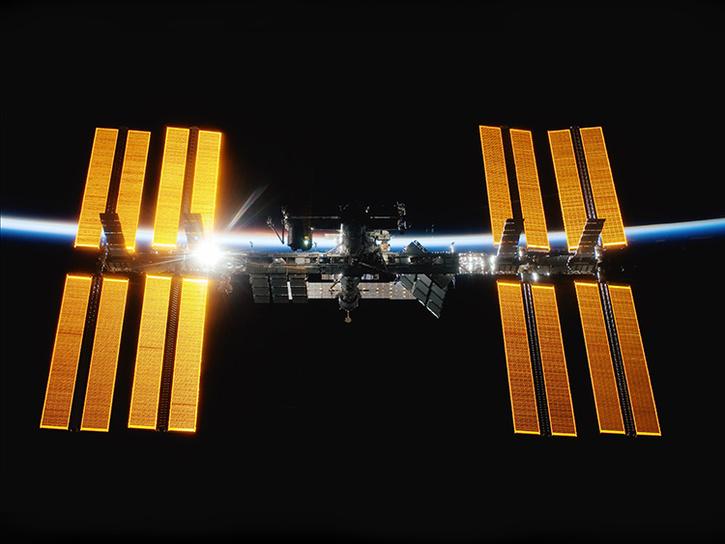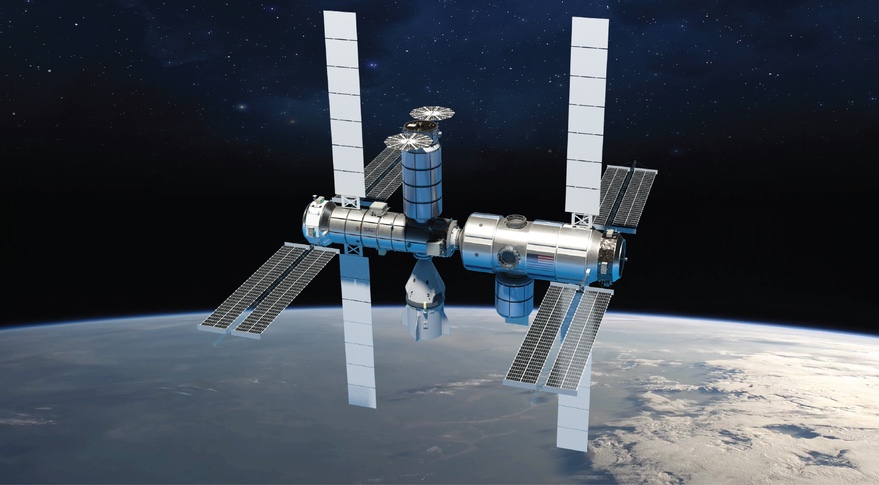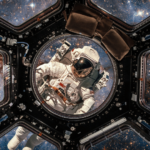Joel Montalbano, NASA ISS programme manager, underlined repeatedly at a March 14 briefing regarding a pair of scheduled spacewalks aboard the station that the geopolitical tensions on Earth between Russia and the West have not extended to the ISS.

“In the last three weeks, nothing has changed,” he remarked. “What’s going on around us hasn’t had any effect on us.” We are capable of performing our duties. We’re aware of the situation, but we’re able to carry on with our work and activities.”
He cited the launch of the Soyuz MS-21 spacecraft to the International Space Station on March 18, which brought three Russian cosmonauts to the station. On March 30, the Russian cosmonauts Anton Shkaplerov and Pyotr Dubrov, as well as NASA astronaut Mark Vande Hei, will return to Earth aboard the Soyuz MS-19 spacecraft.
In recent days, media reports speculated that Vande Hei might be denied a place on the Soyuz, based in part on a Russian video showing Shkaplerov and Dubrov leaving without Vande Hei, taking the Russian component of the station with them. However, Montalbano stated that Vande Hei would return on Soyuz MS-19 as planned.
“I can assure you that Mark will return on that Soyuz,” he stated. “We’re in contact with our Russian counterparts.” There isn’t a speck of fuzz on there.”
Later in the conference, he confirmed this, stressing that the ISS partners recently completed a “readiness study” for that return. “Everyone has confirmed that Anton, Pyotr, and Mark will be returning home.”
He added NASA’s role in the post-landing recovery activities will remain unchanged, including the employment of a NASA Gulfstream G5 plane to pick up Vande Hei and fly him back to Houston. NASA has “just under 20” employees working on those operations, including those who fly in on the plane and those who work for the US embassy in Kazakhstan.
Other station activities are likewise going according to schedule. NASA astronauts Kayla Barron and Raja Chari performed a spacewalk on March 15 to install equipment that will be used by new solar panels that will be added later this year. Another spacewalk, slated for March 23, will include a range of outside station maintenance tasks. Axiom Space’s Ax-1 private astronaut mission is still on track to launch on a SpaceX Crew Dragon spacecraft on March 30.
Montalbano stated that work on a seat barter deal between NASA and Roscosmos is still in progress, which would allow NASA astronauts to travel on Soyuz spacecraft in exchange for Roscosmos cosmonauts flying on private crew vehicles. “We still plan to work on the crew swap,” he added, noting that cosmonauts will train at NASA’s Johnson Space Center and SpaceX’s headquarters in California, while NASA astronauts will travel to Star City, Russia. “We’re still working on those agreements today.”
Roscosmos also indicated that ISS operations, including the planned return of the Soyuz MS-19, are unaffected. Vande Hei, together with Shkaplerov and Dubrov, will return on Soyuz MS-19, according to a statement released by Roscosmos and reported by the Tass news service. The agency claimed, “Roscosmos has never let anyone doubt its reliability as a partner.”
One explanation is that neither NASA nor Roscosmos are capable of running the station on their own. “The Space Station was built to be interdependent,” stated Montalbano. “It isn’t a process in which one group can separate from another.” To be successful, we need everything to work together.”
He explained that the US segment is in charge of “non-propulsive” attitude control and provides communications and extra power to the Russian segment. Russia, for its part, supplies propulsion to keep the station in orbit as well as extra attitude control. According to him, a Cygnus cargo spacecraft now tethered to the station will conduct a reboost test this spring, but even that will require Russian thrusters to provide attitude control.

In a March 12 interview after a panel discussion at the South by Southwest festival in Austin, Texas, Robyn Gatens, ISS director at NASA Headquarters, expressed a similar sentiment. “Trying to operate independently from our partners would be a challenging situation,” she said. “We are depending on our partners, and we hope that this will continue.”
However, in the long run, this interdependence raises concerns. While Canada, Europe, and Japan have all expressed support for NASA’s plan to extend ISS operations from 2024 to 2030, Russia has been dubious of the idea since the invasion of Ukraine. Even if it is willing to maintain operations in the short term, Russia may now be less supportive of the station’s long-term prospects.
“If we have time,” Gatens added, “it opens up some options for us” to operate the station without Russia. “I believe that focusing our efforts and resources on trying to backfill the capacity that one of our partners is giving would be challenging and constrain our aspirations for the space station through 2030.”




